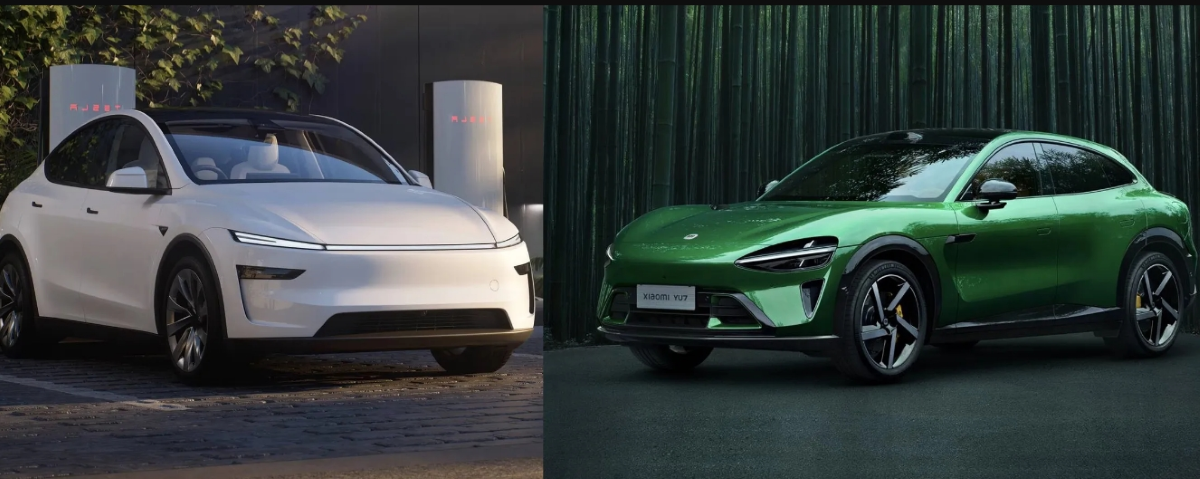Tesla Now a Major Target for Chinese Automakers: Xiaomi SUV Debut, BYD Price Cuts, and More
Chinese automakers are intensifying the EV competition as the purchase tax break for electric vehicles nears its end — a shift that could threaten Tesla’s market share in China.Xiaomi, the well-known

Chinese automakers are intensifying the EV competition as the purchase tax break for electric vehicles nears its end — a shift that could threaten Tesla’s market share in China.
Xiaomi, the well-known domestic smartphone maker, which entered the EV space with great success through its SU7 sedan series, is now aiming directly at the tesla Model Y with its new YU7 SUV.
The company unveiled the YU7 last week, claiming a driving range of at least 760 kilometers (472 miles) on a single charge — well above the 719 km range advertised for Tesla’s extended-range Model Y. The YU7’s ferrari Purosangue-like design has also attracted considerable attention.

It’s worth noting that the SU7, released in late 2023, captured 39.3% of the Chinese pure electric sedan market from January to April, while Tesla’s Model 3 share shrank to 23.1%. Now, Xiaomi is turning its focus to the Model Y segment.
“We expect the YU7 will significantly erode Tesla Model Y’s market share in China,” Citi analyst Jeff Chung wrote in a report on Sunday.
Although Xiaomi has not yet released the YU7’s official price, Citi estimates it will fall between 250,000 yuan and 320,000 yuan ($34,700 to $44,420) — potentially undercutting the Tesla Model Y, which starts at 263,500 yuan in China — to better attract consumers.
Tesla’s other major competitor in China and Europe, BYD, just announced a sweeping round of price cuts. Over the weekend, the company reduced prices on more than 20 models, with its cheapest model — the Seagull battery-powered hatchback — now starting at just 55,800 yuan ($7,770).
The biggest discount, a 34% markdown, was applied to the Seal 07 plug-in hybrid sedan, slashing 53,000 yuan off its original price of 155,800 yuan. These promotions are set to last through the end of June.
Meanwhile, state-owned Changan is offering a 15% cash discount on its Deepal sub-brand S07 SUV. Stellantis-backed Leapmotor also introduced fixed prices over the weekend, cutting 28% and 30% from its C16 and C11 models, respectively.
BYD shares dropped nearly 6% in Hong Kong trading, while XPeng, Nio, and Li Auto declined by 4%, 3%, and 3%, respectively.
These abrupt moves reflect intensifying competition across the Chinese auto market — not just in EVs — as excess inventory and weak consumer demand become pressing concerns. The EV purchase tax break, which can save buyers up to 30,000 yuan per vehicle, is expected to end this year. That may weaken demand further in 2025, prompting automakers to act now.
Tesla, once the shining star of China’s EV market, now faces serious challenges from domestic players. With its earlier advantages fading and its lack of feature upgrades, more consumers may gravitate toward cheaper or more intelligent alternatives.
Disclaimer: The views in this article are from the original Creator and do not represent the views or position of Hawk Insight. The content of the article is for reference, communication and learning only, and does not constitute investment advice. If it involves copyright issues, please contact us for deletion.